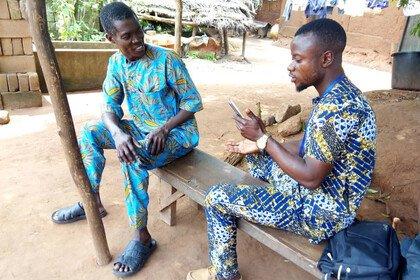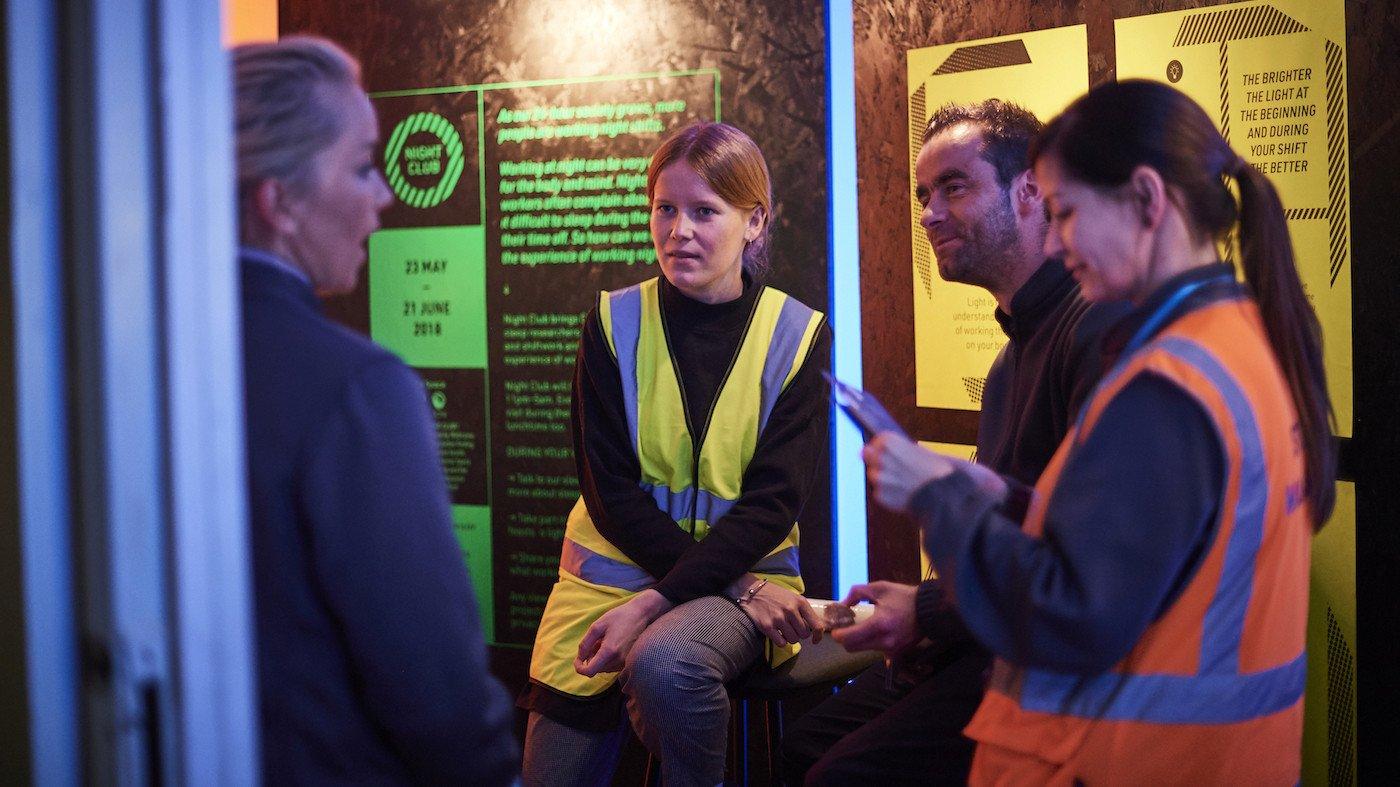
What is stopping health research reaching the people who need it most?
People with fewer educational qualifications are just as interested in health research, even if they engage less with it, Wellcome Monitor finds. Could engagement practices themselves be a barrier to inclusive engagement?

Research fulfils its potential to improve health when it engages those who need it most.
Creative ways of engaging the public can be more inclusive – for example, when they enable people to engage with research about things that matter to them, in places that are relevant to them.
What inclusive public engagement looks like
Night shift workers disproportionately represent those from poorer backgrounds and ethnic minorities. The number of people working night shifts in the UK is growing, and women have accounted for two thirds of this increase in the last five years. The sleep disruption puts shift workers at higher risk of developing health problems like diabetes or mental health issues.
Wellcome funded a project with The Liminal Space, an art and design innovation consultancy, to change this. The project, called Night Club, saw sleep researchers from the University of Oxford leave the lab for the Co-op’s warehouses. It connected night workers and their employers with findings from sleep research to help them work healthier night shifts. People engaged with research and experienced the value it could bring to their lives.
Other projects are taking a similar approach.
Prostate cancer affects twice as many black men compared to other men in the UK. The Centre for BME Health and PROSTaid ran a dominoes tournament where they brought clinical geneticists and clinical nurse specialists as speakers. The project allowed black men to learn about prostate cancer and have a discussion in an informal and familiar setting.
Unengaged or underserved?
Traditional public engagement, like science museums or public lectures, is more accessible to people with free time and disposable income. It has tended to exclude certain groups, particularly along lines of race, class, and gender.
This exclusion has often been attributed to a lack of interest and education, rather than to any issues with public engagement practice.
Wellcome Monitor report, a nationally-representative survey of the public’s attitudes to science and health topics, challenges this assumption.
It finds that regardless of education, people are equally interested in finding out about health research – 29% of those with a degree were very interested in health research, as were 30% with no qualifications.
This is not the case for engagement – 86% of people with degrees have engaged with health research compared to only 69% of people with no qualifications.
Should people be considered unengaged if they are just as interested? Or are they being underserved by research institutions and engagement practices?
If research is going to improve health for all, we need inclusive public engagement
The same groups excluded by traditional engagement practice are also those who have persistently worse health outcomes – healthy life expectancy is 19 years lower for people living in the UK’s most deprived areas compared to those living in the least deprived. A similar pattern holds for ethnic minorities.
To address people’s most pressing health problems, research should focus on where it is needed most. But research alone won’t be enough, as Wellcome Monitor shows.
- 20% of people in Great Britain still think vaccines have a high risk of serious side-effects.
- Only 42% of people are interested in the health implications of climate change - evidence for the climate crisis and how to solve it won’t matter if people don’t care.
- 75% of people are interested in mental health research, but researchers struggle to involve young people and ethnic minorities in their studies.
These are all public engagement issues.
Given only 1 in 3 people feel that scientists care about their views, there is more work to be done. We, as the research community and public engagement practitioners, can do more to support marginalised groups. To ensure research translates to better health for all, we need inclusive engagement with research as much as we need inclusive research.


